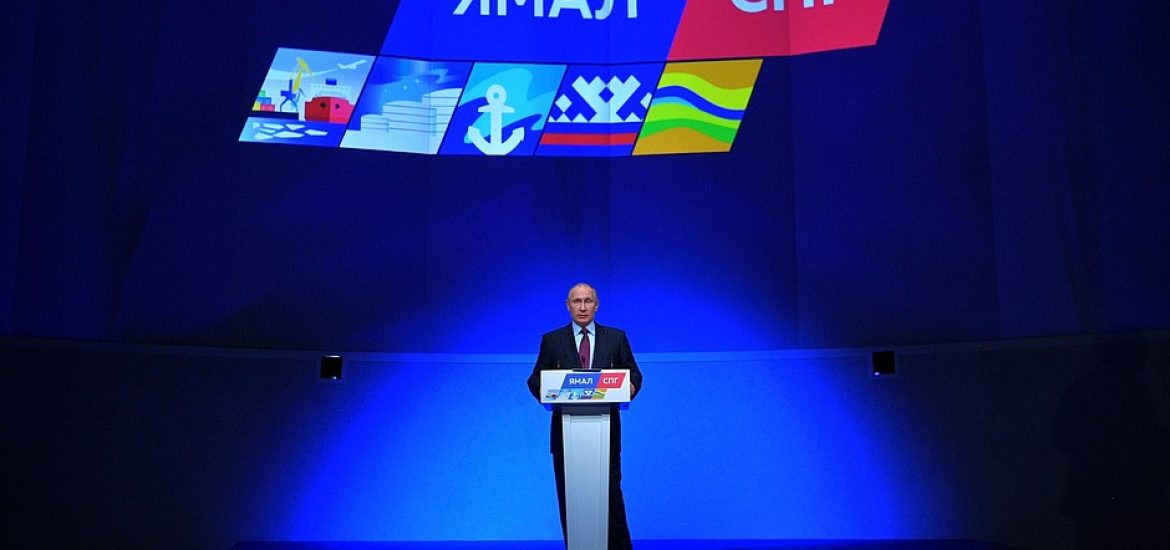
Russia’s high-profile Arctic gas project on the northern tip of Siberia’s remote Yamal peninsula began loading its first seaborne shipment on December 8, marking the start of commercial operations for the US$27-billion project that is boosting energy co-operation with China.
The Yamal LNG (liquid natural gas) project, funded by Chinese banks and part-owned by France’s Total, is run by Russia’s Novatek. It is set to produce 16.5 million tonnes of super-cooled gas a year by 2019, in defiance of western sanctions.
Since its inception in late 2013, an airport and port have been constructed, as well as gas storage reservoirs and the LNG processing depot.
The project plans to export LNG to Asia and Europe in a fleet of ice-class tankers as Russia opens up navigation of its frozen Arctic waters.
It is being seen as a boost to Russia’s ambitions of tapping vast Arctic hydrocarbon resources and a test case for the viability of the previously blocked sea route to Asia.
Novatek has already launched a first of three planned 5.5 million tonnes a year processing and storage plants at Yamal LNG, but waited for Russian President Vladimir Putin, who has taken a keen interest in the project, before beginning to load an export tanker with chilled liquefied fuel.
Putin attended the opening ceremony in minus 30°C temperatures.
An 80,000-tonne tanker designed to carve through 2.5 metres of ice was filled with gas in Sabetta.
“Despite challenging operating conditions, Yamal LNG was delivered on time and on budget,” said Samuel Lussac, a fuel specialist at Wood Mackenzie. “That is unusual in the LNG industry.
“Novatek, once a domestic gas supplier, becomes a global LNG player,” he added. The project is also due to boost Total’s strength in the LNG sector, where it is the world’s second largest producer.
The port is closer to the North Pole than Moscow. For around six months a year, ships will be able to carry gas to China in about 15 days, about half the time of the journey through the Suez Canal.
In addition to overcoming climatic challenges, Novatek has circumvented western sanctions introduced after the seizure of Ukraine’s Crimea in 2014. Sanctions have aimed to stifle the expansion of Russia’s energy industries that account for about half of its export revenues.
“When this project began, several people made a list of reasons why it would not work. There were risks. But you can see it has been a success,” Putin told the event. “This is a crucial event, not just for energy but for the whole use of the Arctic . . . and the northern route.”
President Vladimir Putin launching the first gas tanker at the Yamal LNG plant. Picture credit: Kremlin





